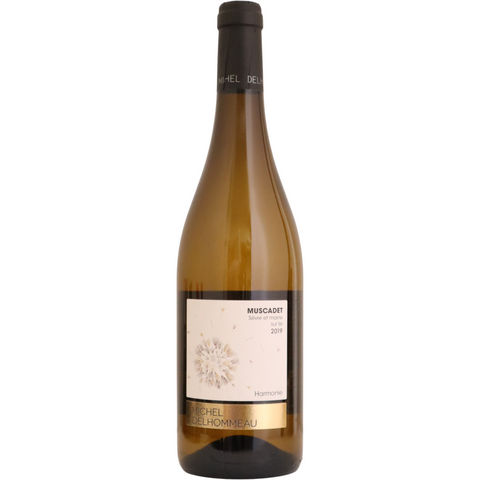
2019 Michel Delhommeau Muscadet " Cuvee Harmonie", Loire Valley, France
Enticing aromas of pear, lemon zest , crushed oyster shells, biscuit and vanilla. The palate offers loads of slate, mineral, citrus and tropical fruit with a lingering finish of sea spray. Pair this simply prepared fresh seafood.
ABOUT THIS WINE
Harmonie is produced from a single parcel of 25-40-year-old vines planted on gabbro soils – the main terroir Michel Delhommeau farms. Gabbro is chemically indistinguishable from Basalt, being its coarse-grained cousin, and makes for a round and supple version of Muscadet with tremendous minerality and capacity for aging.
Melon de Bourgogne from vines that range from 25 to 40 years in age that are grown in sand and gabbro at 30 meters. The fruit is hand harvested and fermentation is started with only natural yeast in tank. The wine then spends 5 months in tank on the lees.
ABOUT THIS PRODUCER
Brittany, parts of Normandy, and the western part of the Loire valley are essentially built on a foundation of cooled lava and magma. Over millions of years, this lava has metamorphosed into many kinds of geological structures. The most common in the Loire is granite, and in Muscadet, it’s everywhere. Vineyards are carved out of its hard surface, and the hallmark minerality that it helps to produce makes Muscadet one of the great white wines of the world. In one village in the Muscadet region, Monnières, this cooled lava didn’t change into granite. Instead, it stayed in a relatively unchanged fashion and today is called gabbro. It is one of the purest forms of molten magma as it is formed underground, and without an escape route, turns crystalline.
Michel and Nathalie Delhommeau, a young couple making some of the most crystalline Muscadets you can find, own 27 hectares of vines planted on this gabbro. Some of their holdings are old vines planted before World War II. In conversion to organic certification, the property is one of the few in the region to vinify by parcel and use indigenous yeast. The wines here are simply made but not simple. There is no wood aging. There is very little lees stirring. There are no fancy techniques. The grapes are harvested, they are gently crushed, they ferment naturally, and then they take a long winter’s nap until March. It is, above all, the gabbro that is the loudest voice in this conversation.
Recently Michel and Nathalie have started buying small amounts of vines on other soil types like the hard granite of Monnières Saint Fiacre and Clisson, which they will separate out into new cuvées. These, along with the higher-end current wines, will spend a longer time in tank to help develop the structure before bottling.
Details:
| Grape(s) | Melon de Bourgogne |
| Farming | Organic |
